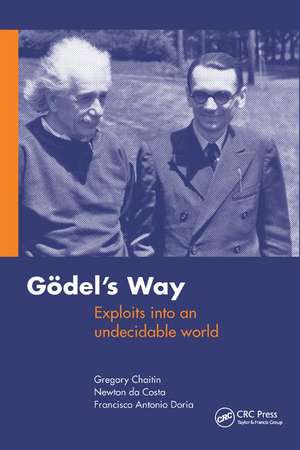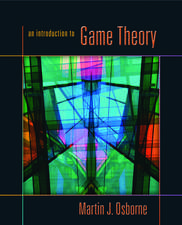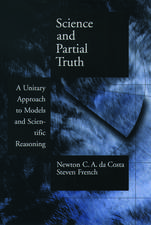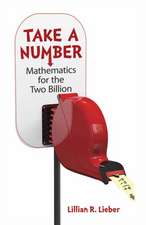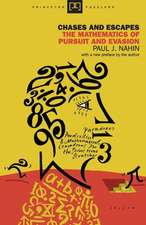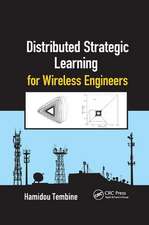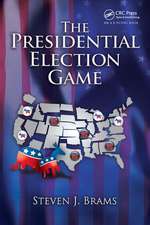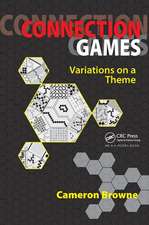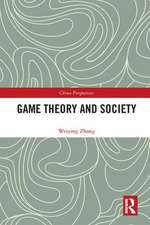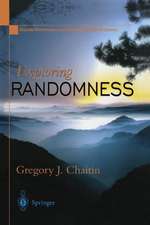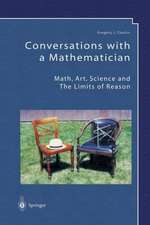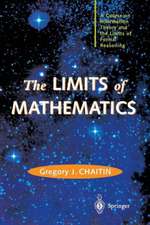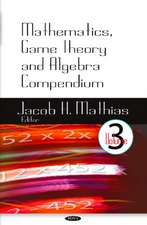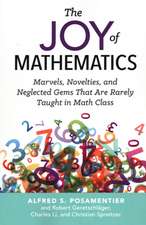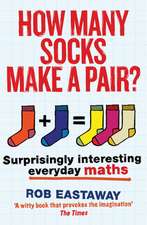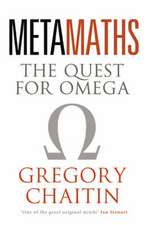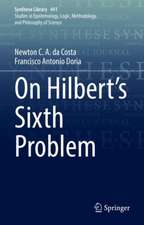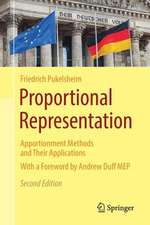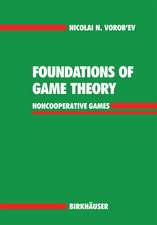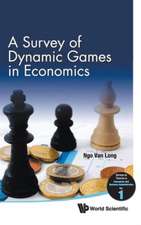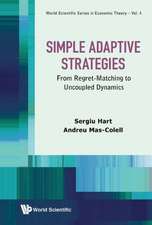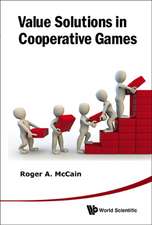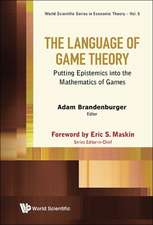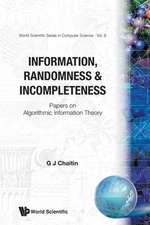Goedel's Way: Exploits into an undecidable world
Autor Gregory Chaitin, Francisco Doria, Newton da Costaen Limba Engleză Hardback – 28 iun 2018
| Toate formatele și edițiile | Preț | Express |
|---|---|---|
| Paperback (1) | 442.93 lei 6-8 săpt. | |
| CRC Press – 14 oct 2011 | 442.93 lei 6-8 săpt. | |
| Hardback (1) | 1326.99 lei 6-8 săpt. | |
| CRC Press – 28 iun 2018 | 1326.99 lei 6-8 săpt. |
Preț: 1326.99 lei
Preț vechi: 1618.28 lei
-18% Nou
Puncte Express: 1990
Preț estimativ în valută:
253.91€ • 265.11$ • 210.15£
253.91€ • 265.11$ • 210.15£
Carte tipărită la comandă
Livrare economică 05-19 aprilie
Preluare comenzi: 021 569.72.76
Specificații
ISBN-13: 9781138442061
ISBN-10: 1138442062
Pagini: 160
Dimensiuni: 156 x 234 mm
Greutate: 0.45 kg
Ediția:1
Editura: CRC Press
Colecția CRC Press
ISBN-10: 1138442062
Pagini: 160
Dimensiuni: 156 x 234 mm
Greutate: 0.45 kg
Ediția:1
Editura: CRC Press
Colecția CRC Press
Public țintă
General, Postgraduate, Professional, Professional Practice & Development, and UndergraduateRecenzii
Most scientists don’t really understand how important the process of formalization of logic, set theory and mathematics has been, both for showing when formalization is possible, and when it is not. Ok, I admit that most filmmakers, myself included, don’t really understand that either… So for scientists and filmmakers alike, I strongly recommend "Gödel’s Way: Exploits into an undecidable world". It’s a brilliant book, written by three brilliant men, Gregory Chaitin, Francisco Doria and Newton da Costa, two of whom are Brazilians like me. Read it, and you will find out why Gödel has a way of being relevant almost everywhere.
José Padilha
This is not a conventional book on science; rather, it is the three authors’ personal journey through the world of Gödel’s theorem and computational complexity… There are no formal definitions, theorems, or detailed proofs. But there are audacious predictions, which would surprise most complexity theorists... [E]ntertaining for a reader who has the same background as the three authors and likes to make big leaps forward at the same points as the authors.
M. Bona, University of Florida, in CHOICE, September 2012, Vol. 50 No. 1.
"The text is based on graduate lectures and extended courses for a wide spectrum of engineering student and on own practical experiences. Also professionals in modeling of heat transfer, incompressible viscous flow, and heat convection and corresponding codes can profit from the book."
––Georg Hebermehl, Zentralblatt MATH 1257 |
José Padilha
This is not a conventional book on science; rather, it is the three authors’ personal journey through the world of Gödel’s theorem and computational complexity… There are no formal definitions, theorems, or detailed proofs. But there are audacious predictions, which would surprise most complexity theorists... [E]ntertaining for a reader who has the same background as the three authors and likes to make big leaps forward at the same points as the authors.
M. Bona, University of Florida, in CHOICE, September 2012, Vol. 50 No. 1.
"The text is based on graduate lectures and extended courses for a wide spectrum of engineering student and on own practical experiences. Also professionals in modeling of heat transfer, incompressible viscous flow, and heat convection and corresponding codes can profit from the book."
––Georg Hebermehl, Zentralblatt MATH 1257 |
Notă biografică
Gregory Chaitin is an Argentinian-American mathematician and computer scientist. The author of many books and scholarly papers, Chaitin proved the Gödel-Chaitin incompleteness theorem and is the discoverer of the remarkable omega number, which shows that God plays dice in pure mathematics. Currently, he is attempting to create a mathematical theory of evolution and biological creativity, based on considering life as evolving software. He is a member of the International Academy of the Philosophy of Science and of the Brazilian Academy of Philosophy, and was awarded honorary doctorates from the University of Cordoba and the University of Maine. Chaitin is currently a visiting professor at the Federal University of Rio de Janeiro (UFRJ) in the program on Epistemology and History of Science and Technology (HCTE). He is also an honorary professor at the University of Buenos Aires. Newton da Costa is a Brazilian logician whose best known contributions have been in the realm of nonclassical logics. Da Costa developed paraconsistent logics, that is, logical systems that admit inner contradictions. Da Costa has wide-ranging interests, which go from foundational issues in the philosophy of science to physics (general relativity and quantum theory); besides his development of paraconsistent logics, he introduced the concept of quasi-truth to deal with mutually inconsistent scientific theories. Da Costa has a B. Sc. in civil engineering and a PhD in mathematics. He has visited several major universities (Stanford, Berkeley, Paris VII among others) and published about 200 scientific papers and several books on logic and the foundations of science. In 2009, he became a Professor Emeritus at Unicamp (Campinas, Brazil). Newton da Costa is a member of the Institut International de Philosophie, of the International Academy of the Philosophy of Science and of the Brazilian Academy of Philosophy. Francisco Antonio Doria is a Brazilian physicist. Doria is a Professor Emeritus at the Federal University of Rio de Janeiro, where he currently teaches economic theory at the graduate School of Engineering (UFRJ COPPE). Doria has a B. Sc. in chemical engineering and a PhD in mathematical physics. He has made contributions to the gauge field copy problem in quantum field theory and proved with Newton da Costa several incompleteness theorems in mathematics, physics and mathematical economics, including the undecidability of chaos theory. Doria is a member of the Brazilian Academy of Philosophy, was a Senior Fulbright Scholar at Stanford University, 1989-1990, and a visiting researcher at the mathematics department, University of Rochester.
Cuprins
1. Goedel, Turing 2. Complexity, Randomness 3. A List of Problems and Weird Spacetimes 4. The Halting Function and its Avatars 5. Entropy, P vs. NP 6. Forays into Uncharted Landscapes Envoi: On Eternity and Beyond
Descriere
This book illustrates how the ideal of servant leadership can be applied in your school today. With real-life scenarios, discussions, and self assessments, this book gives practical suggestions to help you develop into a caring and effective servant leader.
